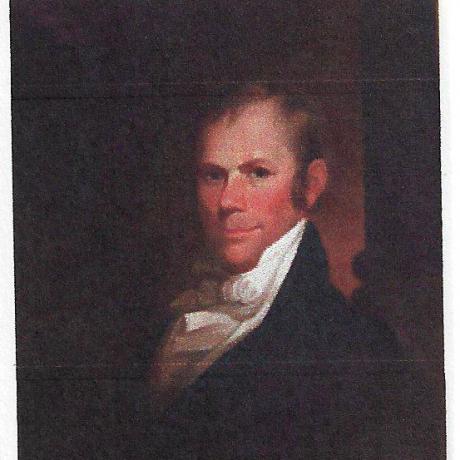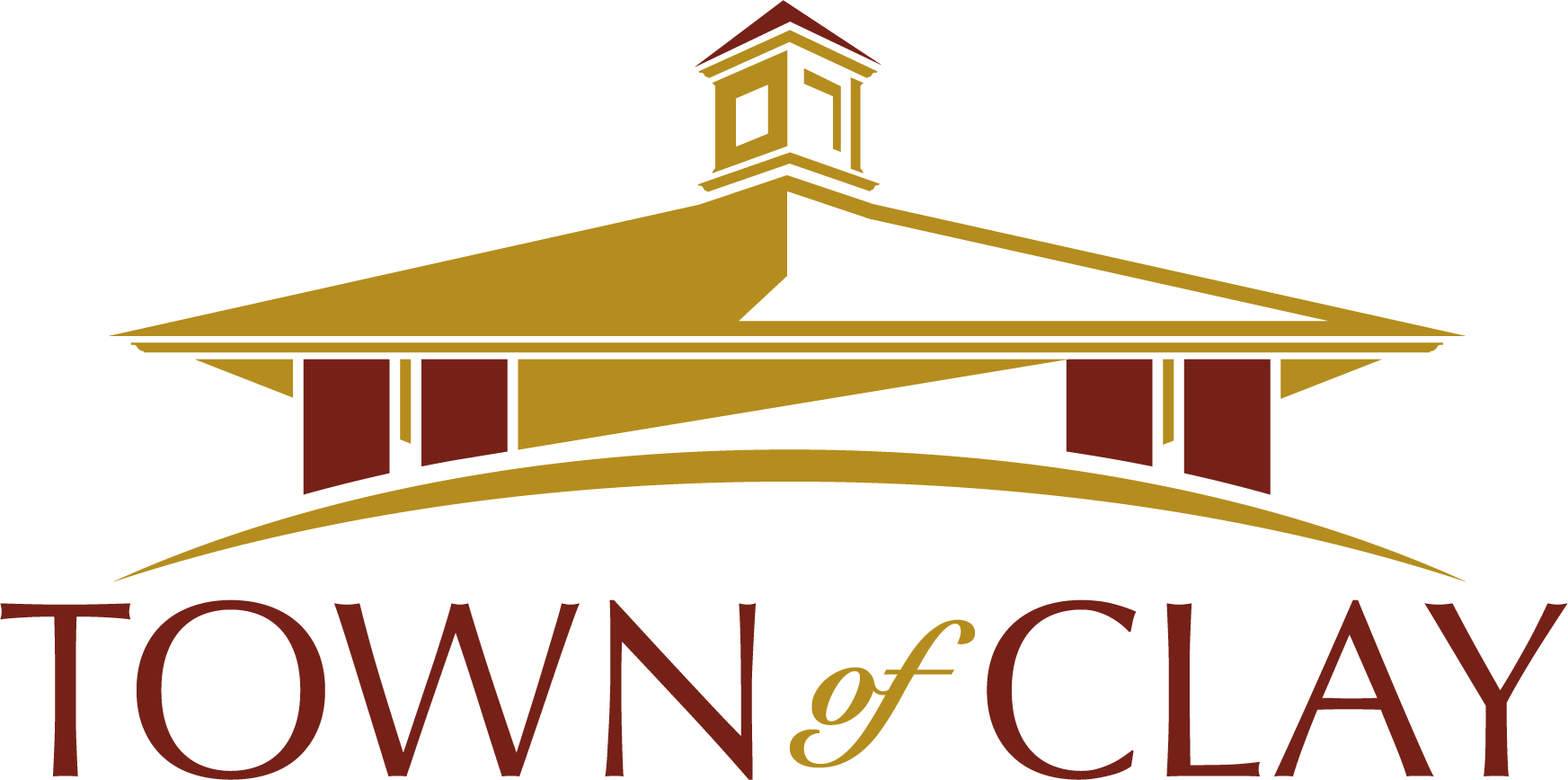Henry Clay - The Town's NamesakePosted on May 15, 2018 |
Image

|
REMEMBERING CLAY
Henry Clay – The Town’s Namesake
Henry Clay, Sr. was born April 12, 1777 at the Clay homestead in Hanover County, Virginia in a story and a half frame home. It was an above-average home for ‘common’ Virginia planter with 22 slaves. His ancestors had been in Virginia since approximately 1612 when John Clay arrived from England. Being the seventh of nine children, Henry was only four when his father, the Rev. John Clay, a Baptist Minister, died in 1781. A short time later, the British, under Banastre Tarleton raided their home, leaving the family in a “precarious position.” However, Henry’s mother, Elizabeth Clay, married Capt. Henry Watkins, who was an affectionate stepfather and a successful planter. She had seven more children with him. Henry remained in Hanover County and learned how to read and write from an Englishman named Peter Deacon. In 1791, Henry Watkins moved the family to Kentucky, but young Henry stayed in Virginia working at an emporium with a promise that he would receive the next clerkship at the Virginia Court of Chancery.
only a year, a clerkship was available and Henry adapted well to this position. His handwriting caught the attention of George Wythe, a signer of the Declaration of Independence, mentor to Thomas Jefferson and a judge on Virginia’s High Court of Chancery. Because of a crippled hand, Wythe chose Henry as his secretary where he remained for four years. He learned much from Wythe and embraced his views on world affairs, especially that the United States could help spread freedom around the world. Although he adopted Wythe’s views on slavery, while Wythe freed all his slaves, Henry kept his throughout his life. Wythe arranged a position for him with attorney General, Robert Brooke so he could finish his legal studies and he was admitted to the Virginia Bar in 1797. Without good family connections in Virginia to help his career, Henry decided to move west to be closer to his family in Kentucky. In 1797, Henry married Lucretia Hart in Lexington, Kentucky. They had eleven children (six daughters and five sons). All six daughters died by 1835 from various causes. Henry Clay, Jr, was killed during the Mexican-American War at the Battle of Buena Vista and the oldest son, Theodore, spent the last half of his life in a psychiatric hospital.
Henry’s legal career began with his move to Versailles, Kentucky. Lexington, the center of the Bluegrass Region, was well established with the first university west of the Appalachian Mountains. He quickly received his Kentucky license to practice law and established his own laws firm. In 1805, he was appointed to the faculty of Transylvania University where he taught, among others, future Kentucky Governor, Robert P. Letcher and Robert Todd, the future father-in-law of Abraham Lincoln. One of his first clients was his father-in0law, Colonel Thomas Hart, an early Kentucky settler and prominent businessman who helped Henry gain clients, make business connections and grow in his professional stature. His most notable client was Aaron Burr in 1806 after the US District Attorney Joseph Hamilton Daveiss indicted him for allegedly planning an expedition into Spanish Territory west of the Mississippi River. Henry and his law partner, John Allen defended Burr. Years later, Thomas Jefferson convinced Henry that Daveiss had been right in his charges. When he met Burr years later, Henry would not shake Burr’s hand.
Of domestic interest, in 1804 Henry purchased land outside of Lexington with a dream of building a plantation called Ashland after the surrounding forest of Ash trees. By 1812, he owned 600 acres of productive land and many slaves to work it. At its peak, he held 60 slaves producing tobacco and hemp and tending the Hereford livestock which he had introduced to Kentucky.
Because of his legal work, Henry earned the reputation as a defender of the common man. In 1803, not old enough to run for office, he was appointed to the Kentucky General Assembly where he worked with the electoral college to make sure Thomas Jefferson had enough votes to win the 1804 presidential election. He advocated for direct elections in Kentucky and gradual abolition of slavery. As a member of the Democratic-Republican Committee, he was elected to the State Legislature. In 1806, the Kentucky legislature elected him to a senate seat to complete John Breckinridge’s term. Although only lasting two months, he won numerous friends and gained a reputation as a diligent worker and entertaining public speaker. Returning from Washington to Kentucky in 1807, Henry was elected as the speaker of the state House of Representatives. In 1810 when Senator Bruckner resigned, Henry was elected to serve out his fourteen-month term.
one year, Henry decide he disliked the senate rules and decided to seek election to the United States House of Representatives. He easily won and shortly after was named Speake because of the weakening of the Federalist Party. He used his power very diplomatically and was a master of parliamentary maneuvers. He was re-elected five times to the House and as Speaker. His tenure was interrupted when he went to Britain to help negotiate the Treaty of Ghent which ended the War of 1812. Henry was influential in launching the American System – tariffs to foster American industry and a national bank; both attacked by Andrew Jackson. losing the presidential election against Jackson, Adams was helped by Henry to win the contingent election in the House of Representatives. This greatly angered Jackson.
It was during these trying times that Clay came to be. The Town of Cicero petitioned the State Legislature to divide the town and the western half to be called Bolivar. Since there was already a town by this name, the Legislature, without the knowledge of the inhabitants, gave it the name Clay after Henry Clay. In 1830, being dissatisfied with the name, many influential Clay residents petitioned the State Legislature to change the name to Euclid. It appears the bill was never presented or passed. In 1832 Henry ran for president on the National Republican Party ticket and was defeated by Jackson. Following the election, the National Republican Party joined with other opponents of Jackson to form the Whig Party which remained one of the two major American political parties at the time of Henry’s death in 1852.
Henry Clay was involved in many monumental events as the annexation of Texas, the Mexican-American War, the Nullification Crisis , the Missouri Compromise of 1820, the Compromise Tariff of 1833, the annexation of Texas, the Mexican-American War, the Compromise of 1850 and many other interests of the western states. His most well-known achievement was the name he was given as “The Great Compromiser.”
Dorothy Heller, Historian
Other
Remember Clay Stories
Influence of Natives Part I
Remembering Clay | Nov 16, 2018
CLAY SETTLERS
Influence of Natives (Part I)
CLAY HISTORY FROM THE BEGINNING
Remembering Clay | Jan 1, 2012
The first settlers in Clay are believed to be the Onondagas who made a settlement at Three Rivers.
Hiram Sharp - Part IV
Remembering Clay | Aug 22, 2014
Hiram Sharp – Part IV - Political Prisoner in Van Diemen’s Land*

